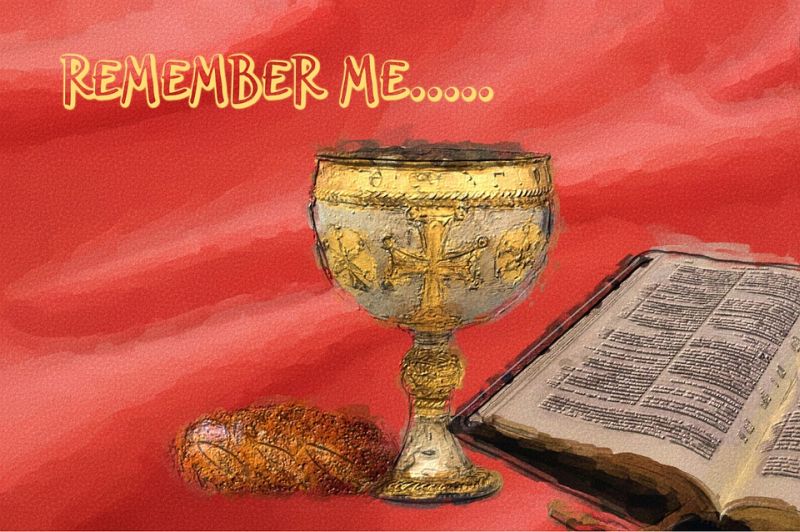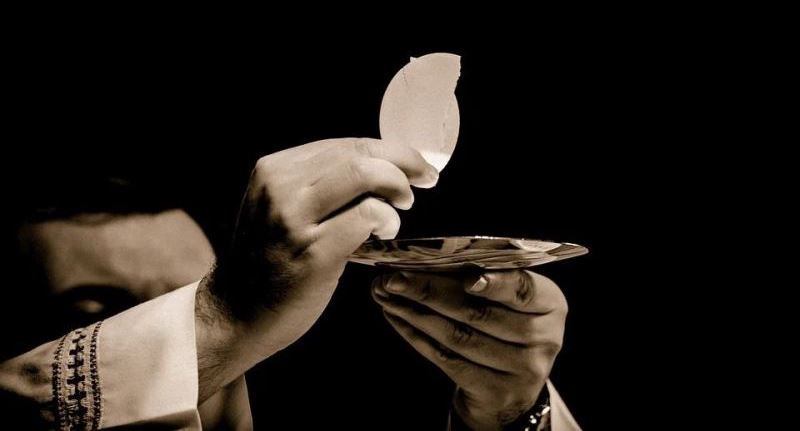R – Remembrance
1Once a minister of a protestant megachurch stood up to introduce the special guest who would be bringing the ‘word of God’ that Sunday. Just before the well renowned speaker came on stage, the minister also said – ‘by the way, there are some crackers (biscuits) and juice kept at the back; help yourselves to it on your way out; so that way we remember Christ.’ What the minister was referring to was…yes, you guessed it – the Eucharistic elements! The crackers and juice were instead of the bread and the wine!
How did something which was referred to as the medicine of immortality2, that which was understood as flesh and blood of Jesus by the early church, become chips and juice, help yourself to it, kind of thing in the 20th century?
The answer might lie in the crucial difference between the two words: memorial and remembrance.
Memorial vs Remembrance
Memorials are found all over the world.
One of India’s most famous memorials is the India Gate in Delhi. It is a ‘symbol’ of the contributions of the soldiers which would never be forgotten. In New York, USA, you have the famous memorial at ‘Ground Zero’. It’s meant to help you ‘remember’ what happened on September 11th 2001.
A memorial has to do with something which happened in the past. It is a symbolic reminder of a past reality. And unfortunately, a lot of Christians, especially of the protestant persuasion understand (or have been taught) that the Eucharist is a memorial.
But the Eucharist is not just a memorial. It is more than a symbolic reminder of the saving act of God through Jesus. Because, in a mysterious way, the Eucharist is both a past, as well as present, continuous reality. Therefore, rather than using the word ‘memorial’, we must use the word Jesus used – ‘Do this in remembrance of me.’
As we shall soon see, although we think both words have similar meanings, using the right word does make a world of difference.
Anamnesis
The Greek word for remembrance is anamnesis. ‘Mnesis’ has to do with memory. And ‘ana’, the prefix, also means ‘anew.’ Put the two together and it means – reliving what happened or bringing it anew. It’s not just recollecting an experience from the past, rather it’s bringing a past event into the present.
Now let’s put that word into the context of the Eucharist.
As Fr. Michael Shanbour says, ‘In the Eucharist, then, we are not merely reminded of Christ’s incarnation, death and resurrection; we experience and partake of it in the here and now.’3
River of remembrance
Let me try and explain it this way. Imagine you live beside a river. Yesterday, you went and got a cup of water from the river. Today, you got another cup of water from the same river.
Now, let me ask you this question – the water contained in the two cups, one from yesterday and the other from today, are they the same? It’s a difficult question to answer, isn’t it! The water which the two cups contain come from the same source, but they’re not the same. That’s because the water in the river is not stationary but is flowing. I can take bath in the water from the river today and get refreshed and I can take a bath from the water tomorrow and still get refreshed. Same river; same refreshing experiences but at two different times! The river represents a past, present and a continuous reality.
Now, this is similar to what we mean by remembrance in the context of the Eucharist.
Do this in remembrance of me
During the Divine Liturgy, when we hear the words –
‘Do this in remembrance of me: as often as you partake of this sacrament, commemorating My death and My resurrection until I come,’
we are declaring that the saving acts of God through Christ Jesus– His incarnation, death, burial and resurrection – are merely not events which have happened in the remote past, but that we are experiencing it, mysteriously, in the present.
Listen to what St. John Chrysostom referring to the Eucharist says,
“I wish to add something that is plainly awe-inspiring, but do not be astonished or upset. This Sacrifice, no matter who offers it, be it Peter or Paul, is always the same as that which Christ gave His disciples and which priests now offer: The offering of today is in no way inferior to that which Christ offered, because it is not men who sanctify the offering of today; it is the same Christ who sanctified His own. For just as the words which God spoke are the very same as those which the priest now speaks, so too the oblation is the very same.”4
Do you realize what the revered church father is saying? He is saying that, when we offer the Eucharistic elements during the Divine Liturgy, it is same as that which was offered by the Lord Jesus Christ when He first instituted the sacrament of the Eucharist! That is an incredible statement! And to wrap our finite minds around this ‘reality’ is not easy at all! That is why it is a mystery.
Conclusion
1. The Eucharist is the re-living of something which happened in the past, and in the present.
2. The bread and the wine do not represent but re-present the saving act of God through the Lord Jesus Christ for us to experience it afresh, anew.5
3. When we hear Christ’s words – ‘Do this in remembrance of me’, remember it means much more than just remembering!
In the next blog we shall take a look at the devastating ramifications of replacing remembrance with memorial.
Click here to read the 1st part of this devotional.
Click here to read the 2nd part of this devotional.
Click here to read the 3rd part of this devotional.
Click here to read the 5th part of this devotional.
1The couple from whom I heard this first-hand account, offended at the loss of sacredness given to the sacrament, were overjoyed as they found the fullness of faith as taught and practiced in the Orthodox church.
2St. Ignatius of Antioch: The Epistle to the Ephesians – Chapter 20.
3Shanbour, Michael: Know the Faith – Chapter 6 Eucharist & Liturgical Worship pg 199. (emphasis mine)
4Source: St. John Chrysostom, “Homilies on the Second Epistle to Timothy,” 2,4, c. 397 A.D.
5The Orthodox Christians do not believe that Christ is sacrificed once again during the Eucharist; rather they believe in the bloodless sacrifice of the Holy Eucharist.



